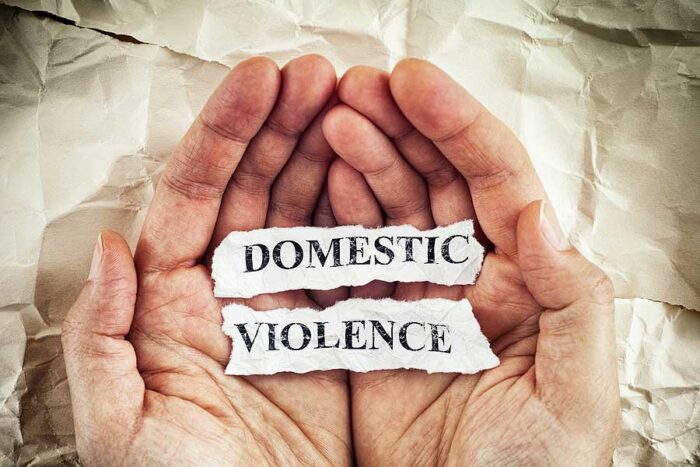
Domestic violence has often been the primary cause of several divorce cases. Several reasons can increase the chances of domestic violence. Violence between a couple can arise due to miscommunication. One of the most effective ways to reduce the chances of domestic violence is to have healthy communication.
If any of the spouses has a problem with the other, it will be most helpful to talk about it, for
instance. Otherwise, these minor issues can pile up and contribute to domestic violence. You
should hire a lawyer from Lento Law Firm if domestic violence by your partner keeps increasing. Besides, you can also become familiar with some of the common factors contributing to domestic violence. Risk factors that can lead to domestic violence
What do Pennsylvania Laws define as a Domestic Relationship?
Domestic violence is defined by Pennsylvania law to include situations in which the parties involved are “family or household members,” co-parents of a child, or current or previous intimate partners. The phrase “family” or “household members” more clearly refers to spouses, whether they are still together or have been divorced or separated, parents and children, siblings, and other people who are kin by blood or “affinity.”
Criminal Charges Related to Domestic Violence

Domestic violence in Pennsylvania is frequently linked to the following behaviors:
- Assault is defined as the deliberate, reckless, or careless infliction of bodily damage or an attempt to inflict bodily harm.
- Child abuse includes molestation and physical or sexual abuse of children.
- Endangering a Child’s Welfare is transgressing parents’ legal obligation to safeguard, nurture, and support their children.
- Charges involving firearms, including the use of threats and illegal possession or use
- False imprisonment/kidnapping: restricting someone’s freedom through force or intimidation
- Stalking is the practice of repeatedly acting in a way that makes another person reasonably worry about their safety.
Risk factors can be classified into two types:
Individual and relationship factors. When considering reducing individual risk factors promoting domestic violence, you should look out for the factors mentioned below:
- Low income or education
- Young age
- Low self-esteem
- History of being physically abusive
- Economic stress
- Hostility towards women
- Aggressive behavior as a youth

- Heavy drug or alcohol use
- Depression
- Suicide attempts
- Belief in male dominance or aggression in relationships
- History of physical or emotional abuse in childhood
- Emotional dependence and insecurity
- Lack of non-violent problem-solving skills
- Antisocial personality traits
- Poor behavioral control
- Impulsive nature
The factors mentioned above are related to an individual’s side. As an individual, it will be
beneficial to look out for such elements. If you observe your spouse exhibiting such signs, you must consult professional help and seek a lawyer’s assistance if the situation worsens.
Besides individual factors, factors from a relationship perspective can play a crucial role. It will be ideal to become familiar with relational aspects as mentioned below:
- History of experiencing poor parenting as a child
- History of having a strict childhood with physical discipline
- Relationship conflicts such as jealousy, possessiveness, tension, etc.
- Control or dominance of the relationship
- Economic stress among the family
- Toxic family relationships or interactions

- Association with antisocial or aggressive friends
- History of witnessing violence between parents as a child
As a result, adverse parental experiences, parental neglect, alcohol or maternal abuse, etc., are some of the most common factors contributing to domestic violence between a couple. One of the most effective ways to reduce the chances of domestic violence is by having healthy communication among each other and being tolerant when minor issues arise.
Professional help, such as therapy or mediation, can be helpful when the couple wants to resolve any underlying problems.
Charges of domestic violence: Repercussions
The repercussions of domestic violence are often severe. Offenders frequently have to serve time in jail, pay hefty fines, go on probation, or take counseling or anger management classes. Although these fees are substantial and bothersome enough, the negative effects may be considerably more upsetting. Convictions for domestic violence go on the official record, which can have long-term effects on many facets of your life.
For instance:
Employment
96% of businesses run some sort of background investigation on a prospective recruit. You can be at a substantial disadvantage to a contender who doesn’t if you have a violent criminal past. Additionally, you won’t even be considered for employment in other sectors, such as healthcare and education.
Landlords

Landlords who rent out apartments would like to know that their renters are reliable, considerate, and won’t cause any issues. Because of this, many people will ask for a criminal record check before renting from someone, and some might be wary of choosing someone who might cause violence on their property.
Licensing for professionals
You will be asked to submit a background check and explain any past legal activity if you want to work in regulated professions like law, medicine, or education. The majority of the time, domestic violence will make getting a professional license considerably more challenging.
What Can a Criminal Defense Lawyer Do to Help?
A criminal defense lawyer with knowledge of all types of domestic abuse cases can assist in preventing your accusations from leading to a conviction if you are the subject of domestic violence claims. Most cases include complex, private interactions between family and household members, allowing you to make the strongest case possible.
Any time law enforcement questions you, a criminal defense lawyer will be beside your side to ensure that nothing you say could be employed against you in the trial. They can also assist in figuring out whether and when self-defense is appropriate in your circumstance, which is frequently a very complicated subject. Your attorney will also be able to advocate for you during a potentially difficult trial process and negotiate the best possible conditions for a plea agreement.

Our criminal defense attorneys have unmatched experience in domestic violence charges to help you get the best result for your case. Contact a lawyer to discuss your particular circumstances or learn more about domestic violence charges.











